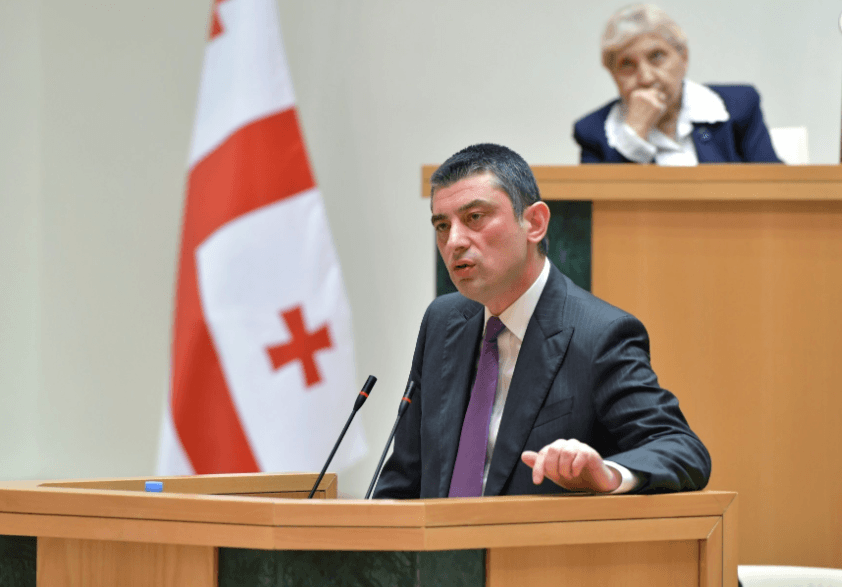On May 2, the Parliament of Georgia heard a report from Interior Minister Giorgi Gakharia on implementation of the Government’s program priorities for 2018.
Gakharia focused in his introductory remarks on changes implemented in the ministry, involving a number of structural, functional and legislative reforms of Criminal, Patrol and Border Police.
Gakharia informed that the Interior Ministry has started piloting the criminal police reform in Tbilisi, which entails division of functions into investigative, operative and community police units.
The Minister also highlighted the new road safety action plan for 2019, which includes a number of measures for tightening traffic enforcement on roads. Gakharia noted that patrol police crews will need to be increased for dealing with growing traffic intensity.
Gakharia spoke on international police cooperation as well. The Minister reported that a total of 166 Georgian citizens, including ten criminal bosses, were arrested in various European countries since January 2018, in cooperation with the Georgian police.
He also spoke on “attempts to discredit” the police and the police officers, saying such attempts have become regular recently. “The police is an absolutely non-partisan and effective institution… we all should remember that it belongs to everyone, and we should all care about its reputation,” he said.
Gakharia also touched upon “certain attempts” to limit the scope and area of the police work. “No one will ever be able to restrict lawful police actions on the entire territory that falls under Georgia’s jurisdiction,” he noted.
Q&A session
Most of the questions in the Q&A session were concerning the Pankisi gorge clashes and the controversy surrounding the David Gareji Monastery. The lawmakers raised a number of other issues, including on crime rates, Khorava street murder, death of Ia Kerzaia and Machalikashvili murder case.
On Pankisi incident, Gakharia said there were “shortcomings” in risk assessment by various ministries that were engaged in talks with the local population, which led to “negative consequences” on April 21. He also stressed the riot police was deployed after locals acted “aggressively,” and solely for “defensive” purposes – to prevent confrontation between them and the construction workers.
Gakharia said the David Gareji issue is “very sensitive and delicate”– “a legacy of the Soviet Union.” He also stressed delimitation and demarcation is “an important matter” that needs to be dealt with urgently: “we will set a new composition of the demarcation commission and talks will begin with Azerbaijan… we need to try to close the issue once and for all.”
“We are sure that the issue will be addressed within the demarcation commission, and in the spirit of our strategic partnership with Azerbaijan, taking into consideration the interests of our cultural heritage and the [Orthodox] church,” he noted.
The Minister refrained from commenting on the Kerzaia and the Machalikashvili cases, saying the investigation is not carried out by the Interior Ministry.
Political assessments
Opposition lawmakers said the Interior Minister failed to respond to their questions.
MP Nika Melia of the United National Movement said: “It is unfortunate that the Interior Minister, one of the main political figures in the country, failed to respond to our queries.” “A minister who has no answers to any of the questions is dangerous for our statehood,” he added.
MP Elene Khoshtaria of the European Georgia echoed the sentiment, saying Gakharia evaded sensitive questions. “Let’s engage in a more in-depth discussion, and give more serious responses to questions that concern our society in the first place,” she noted.
Assessments were different in the Georgian Dream party. Majority leader Archil Talakvadze said the Interior Minister’s reform plans enjoy “full support” of the ruling party. He also pointed out that the opposition was pursuing “narrow” political agenda, and was not genuinely interested in police reforms.
Gakharia repeated these accusations in his recap statement, accusing the opposition of “politicizing” sensitive issues and capitalizing on personal tragedies.
This post is also available in: ქართული (Georgian) Русский (Russian)

